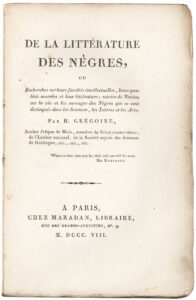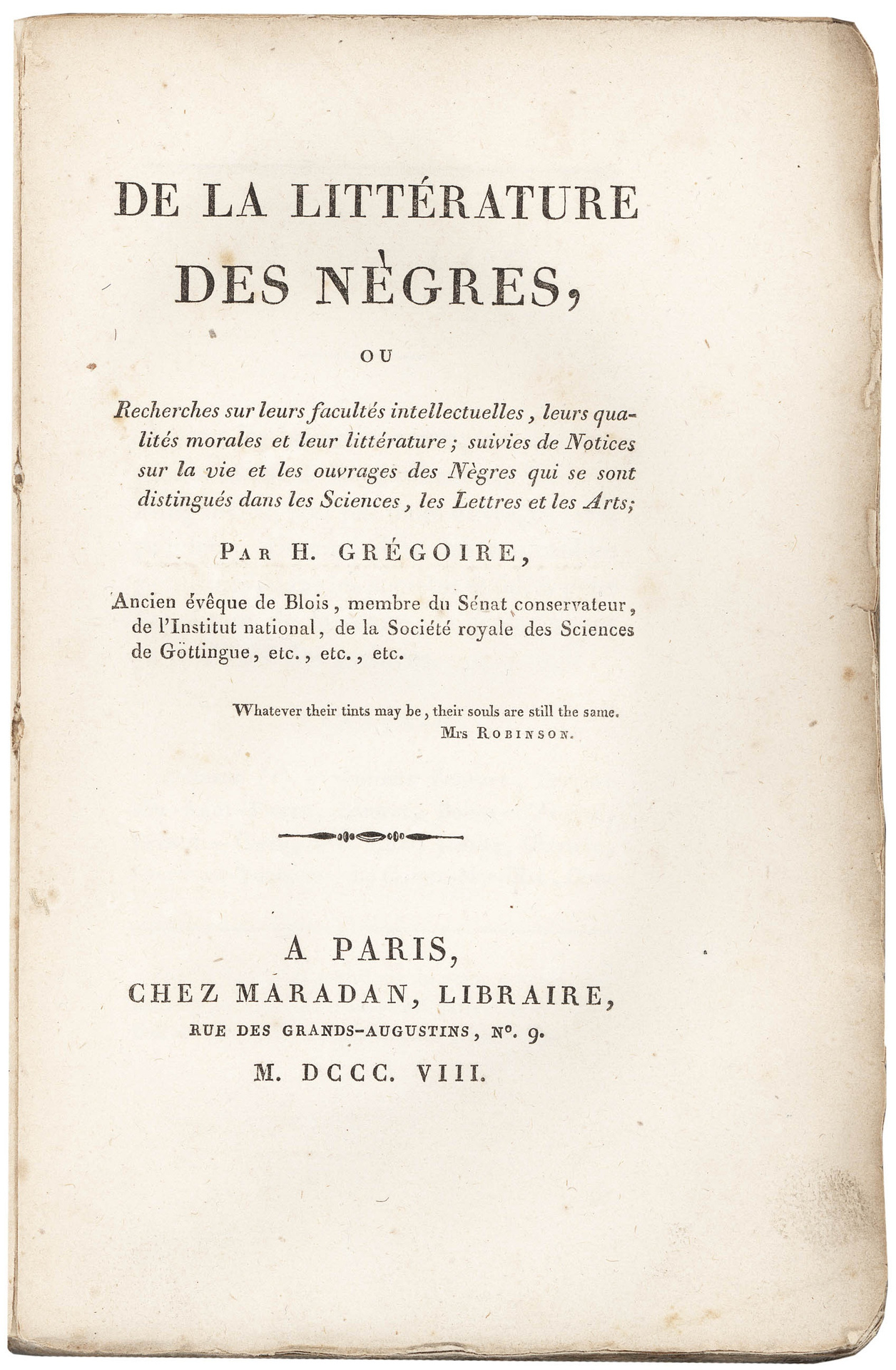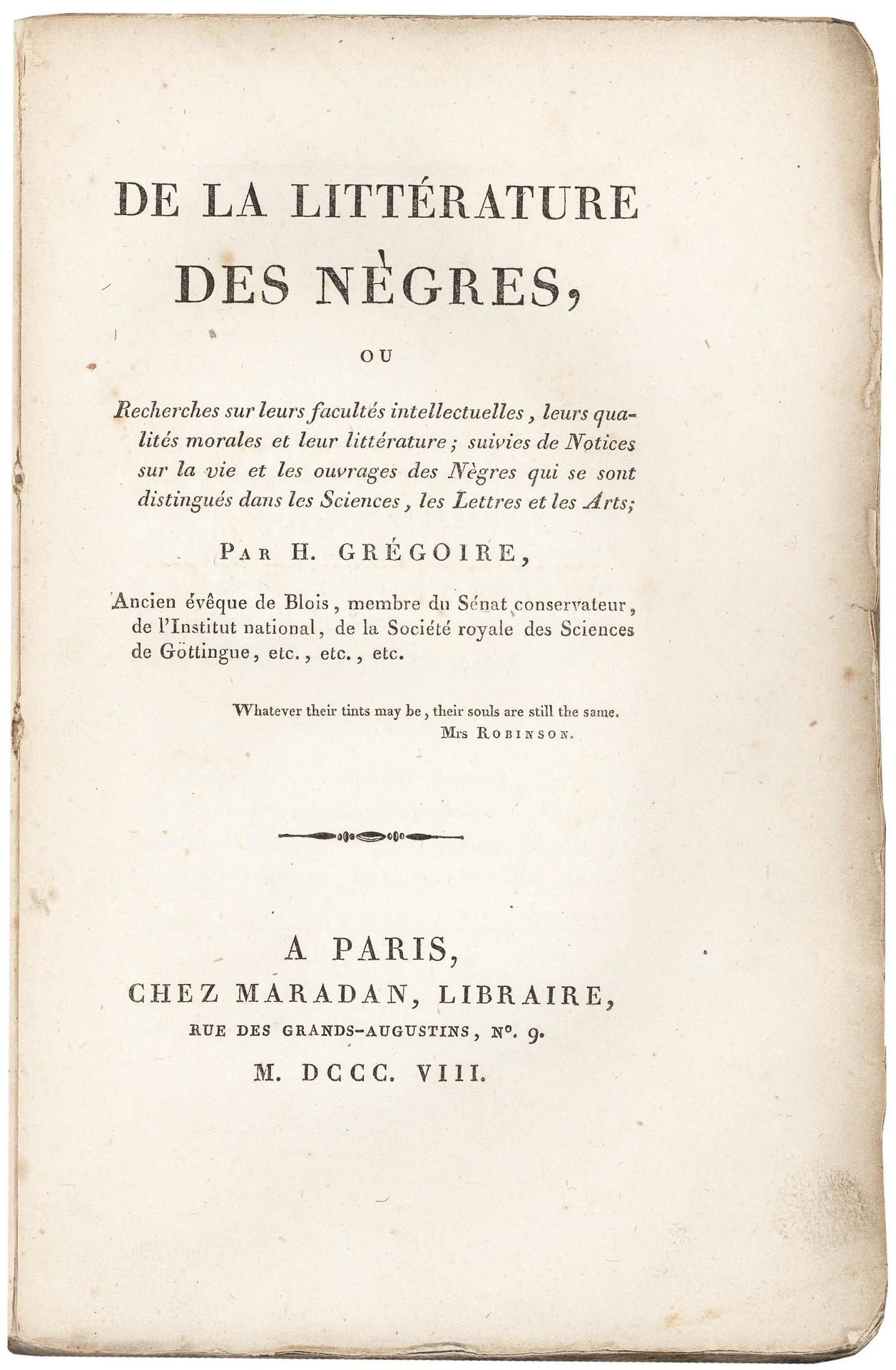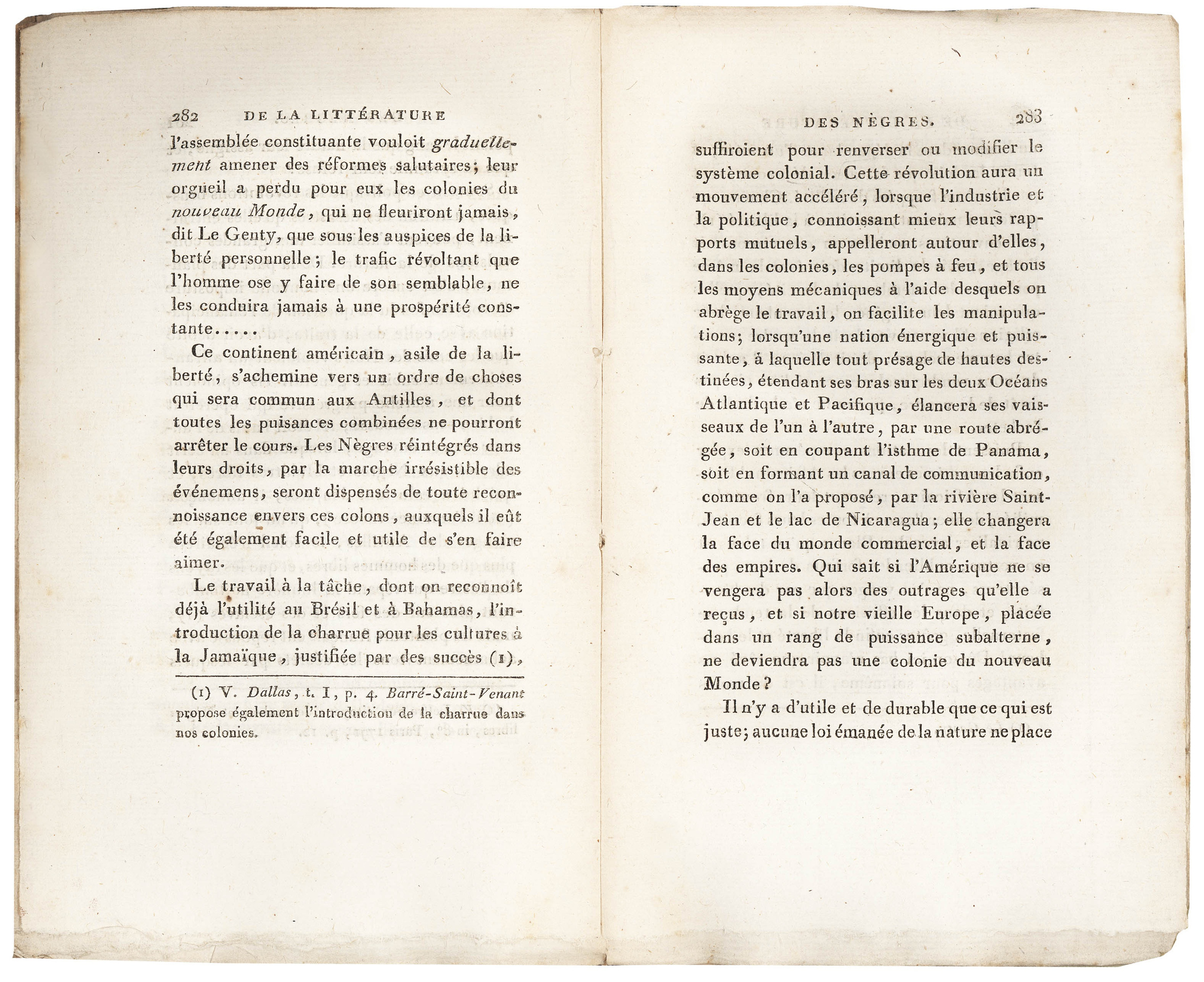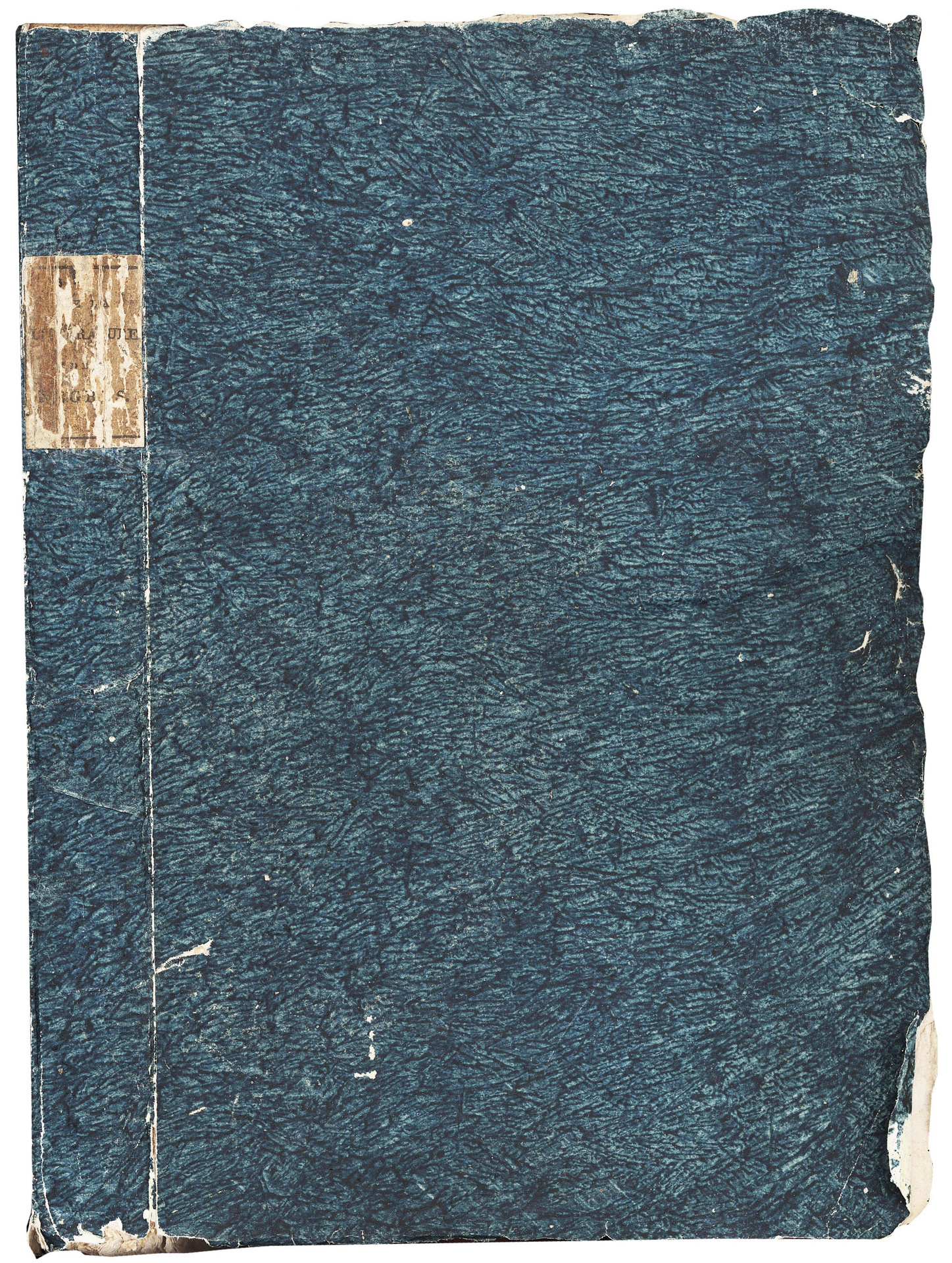Paris, chez Maradan (de l’Imprimerie des Sourd-muets), 1808.
8vo [213 x 140 mm] of xvi pp., 287, (1) p. of errata. Preserved in its original blue paper wrappers as published, printed label on the spine, uncut except for the first and last quires, untrimmed. Original wrappers, exceptional condition.
Rare first edition of one of the grêt texts of modernity, one of the most important by Abbé Grégoire (1750-1831), printed in Paris under the first Empire in 1808.
“As an emblematic figure of the French Revolution, Abbé Grégoire joined the Third estate and, at the Constituent assembly, demanded not only the total abolition of privileges and slavery but also advocated the universal suffrage.
This work, often quoted as a reference by foreign authors is the result of long yêrs of resêrch, it also bêrs the marks of many ambiguities which are explained by the status of Grégoire under the Empire; having the honorific title of senator he is nonetheless in disagreement with almost all the orientations of the regime. The work is a manifesto against the reestablishment of slavery and slave trade, but it is also a token of faithfulness to the abolitionist fights led within the two societies of the Black people’s friends. The philosophical foundation of Grégoire’s position is the unity of human kind that allows him to conciliate both the revolutionary proclamation of the human rights and the evangelical message. In this period of imperial censorship, the work received a discreet reception but provoked outraged rêctions from the colonial party. ” (B. Gainot).
The book « De la littérature des Nègres » is dedicated “to all the brave men who have advocated the unfortunate cause of black people and half-caste, through their works, their speeches in political assemblies, for the abolition of slave trade, the solace and freedom of slaves”. Two hundred seventy one people are explicitly mentioned, among which half are English, a quarter French, and the remaining nationalities being in order Americans, Germans, Danish, Dutch, Italians, and one Spanish.
The period is not favourable for a work supporting the cause of the black people: restoration of slavery in 1802, consular legislation discriminatory for black people. In 1807 a police investigation records all the people of colour living in metropolitan France in order to enlist them in the army…
A precious, fine and extremely rare untrimmed copy preserved as published, uncut in the editor’s blue wrappers in very good condition.
This first edition which had an international impact is a powerful and distinguished cultural marker of the main contemporary book collections from which it is usually missing because of its rarity.
